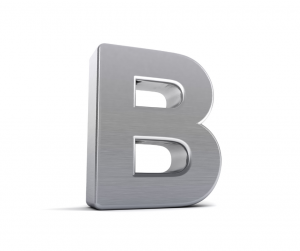Let’s explore the serious and lighter sides of organising with a wander through the alphabet with The A to Z of Organising.
You can read what A is for here.
 In this article, I share what B is for…
In this article, I share what B is for…
Balance – Balance is that elusive feeling we all seek. The balance of work and play, commitment to others and commitment to ourselves. One dictionary definition says “equal distribution of weight, amount, etc.” But balance in a time management sense is not simply about equal amounts of time allocated to the various parts of our lives – work, family, self, health, friendships, and the rest. In life there will always be seasons that require full immersion in one area resulting in a feeling of lack in another. For example, when a new baby means loss of sleep, or a big project keeps you at the office past dinner time. Awareness of how this “imbalance” affects the rest of your life is the first step in regaining a state of equilibrium. Taking action to reprioritise and reset is the next step. Life is a constant balancing act.
Bathroom – An organised bathroom will set you up for a good start to the day. When you can easily lay your hands on the things you need to groom and prepare yourself, your day starts smoothly. What does your morning routine consist of? Wash, brush teeth, groom hair, apply makeup? Can you lay your hands easily on all the things you need to perform those tasks? Are there unnecessary things that get in the way? A half-used bottle of foundation that no longer suits you, dried up lipsticks, 3 old hair brushes are all examples of clutter in the bathroom. The bathroom is actually one of the easiest rooms to declutter. Ditch anything that smells. Get rid of anything that doesn’t work for you. Bin anything that’s past its use by date. Do yourself a favour and create a bathroom that supports your fabulous self.
Bills – Bills come in and they have to be paid, but it’s surprising how many people don’t have a reliable bill paying system. A good system makes life easier, saves time and ensures bills are paid on time. Setting up a direct debit for regular bills is a great investment of time. For one-off bills or those that can’t be direct debited, set up a weekly appointment to sit down and pay them in one session. My bills are paid every Monday. The routine means I never forget, and the frequency means bills are always paid in a timely manner.
Body Double – One of the most common things I hear from my clients is “Why can’t I do this on my own, but I always get lots done when you’re here?” That’s because of what we organisers call the Body Double effect. Isn’t it always easier to do something uncomfortable with a buddy? Committing to daily exercise is easier when you have a walking buddy. Think of a body double as your organising buddy. A good body double acts as an anchor, keeping you company while you get things done. A good body double also acts as a mirror or sounding board. Being able to talk through your thought processes and decisions helps you to move forward and get things done also.
Books – There are many ways to organise books. Some people like to group them by colour. Some like to alphabetise by author. And some like to group them by genre alone. Whichever way works best for you is just fine. Unless you have an extensive library used by many, any of those systems will keep your books organised. But what if you have more books than you have space on your shelves? That’s when you need to make some decisions. And guess what? It’s ok to let go of books. You don’t have to keep every book you ever read or didn’t read. It may help to create some “rules” to help you decide which books get to stay, and which get to move on and give someone else some joy. One “rule” in my house is that I keep any book that’s been autographed by the author. Another “rule” I use is to only keep books I plan to read again or reference in some way. Another way that helps me keep my bookshelves under control is to use digital and audiobooks whenever possible.
Budget – an organised budget, whether it’s for your household or your business is a beautiful thing. It enables savings, gives you control over your finances and empowers you to make good financial decisions. To create an organised budget, simply (ha!) tally all your income, collate all your expenditure for the year, noting whether that expenditure is compulsory e.g. monthly rent and school fees, or discretionary e.g. gifts and entertainment. The more information you can gather, the more clarity you’ll have, and the more effective your spending and saving decisions can be. I rather liked this article by Jessica Irvine in the Sydney Morning Herald. As I said, an organised budget is a beautiful thing. And that brings us right back to balance.



